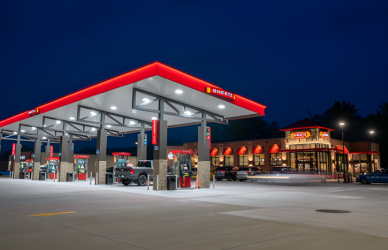A new electronic bills of lading (eBOL) standard is being released to the less-than-truckload market. The National Motor Freight Traffic Association (NMFTA) wants to increase efficiency for not only carriers, but the entire supply chain, as reported by Commercial Carrier Journal.
As of Oct. 24, a total of 30 companies have adopted the standard. It has yet to be fully adopted, with the NMFTA’s council requesting for its members to adopt the standard by July 2023. From here, there is a hope for adoption across the less-than-truckload sector.
“It will require a joint effort between shippers, carriers and 3PLs to adopt a standard eBOL API, and some IT expenses will be necessary,” said Paul Dugent, executive director of the Digital LTL Council.
Stakeholders should expect to receive a return on the investment. And carriers should expect to feel benefit to their administrative, billing, and customer services tasks with increased automation, and sometimes elimination, from eBOL’s abilities. This could save carriers up to 1.3% of their costs and result in the entire industry saving approximately $470 million.
“The benefits, of course, don’t stop there,” said Brian Thompson, SMC³ Chief Commercial Officer. “In addition to eliminating manual data entry and risk of transcription errors, carrier systems receive shipment information sooner, enabling advance operational planning and network optimization. Carriers estimate they could realize an additional 2% reduction in operational costs, making the industry-wide savings nearly $1.2 billion.”
Both manufacturers and distributors should expect to see benefit from the LTL shipment process going digital, according to Christian Piller, vice president of value engineering at project44.
“They’ll see an average of 2% to 4% cost savings per shipment,” he said. “That total value delivered is comprised of many critical factors including increased network efficiency and on-time performance, reduced safety stock levels, decreased dwell times, improved carrier performance and heightened human resource efficiency.”
The LTL industry, which has been behind the curve on incorporating digital technology, will be greatly impacted by eBOLS, Dugent said.
For companies to officially adopt the standard they must commit to the pledge:
“Whereas digitization is critically important for the elevation of the LTL freight industry, and the NMFTA and its Digital LTL Council have worked to facilitate collaboration, automation, standardization and digitization – for the reduction of paper flow and overall better communication across the LTL industry – I recognize the importance of implementing an electronic bill of lading (eBOL) to achieve the highest levels of shipment outcomes and accurate invoicing, and pledge to develop and fully operationalize the eBOL with at least one business partner or 3PL, starting no later than July 20, 2023.”











